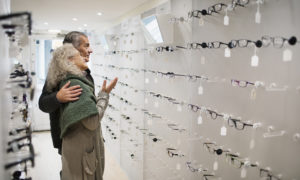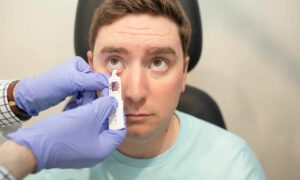By Roger Mummert
ROB Content Director

Jan. 2, 2019
Bad news sells, and we reporters often are the peddlers of impending doom.
In The Shipping News by Annie Proulx, a wizzened editor asks a novice reporter to write a headline based on their view of the town. “It’s a beautiful day with a few clouds over the sea,” the newbie responds. The editor shakes his head then bangs out a headline sure to sell papers: “Impending Storm Threatens Tiny Fishing Village.”
That’s our task, at least in part: Prepare our readers for the worst.
Prediction: There are roughly 15,000 independent optometric practices in the U.S., and in five years 5,000 of them will be out of business, eliminating or reshuffling 25,000 optical jobs. Most of those failed practices and lost jobs will be due to poor management that can and should be corrected now.
This prediction, solely my own and highly subjective, may or may not come to pass–but I’ll bet I have your attention.
Do I feel good about spreading doom’n’gloom? Not particularly, but part of me feels I am doing my job as a journalist who has covered this field for 30-plus years. After all, no one promotes the “End of Journalism” better than we journalists.
Which is why I am struck by the unbridled optimism in a recent New York Times interview with Steven Pinker, author of “Enlightenment Now.”
Pinker argues that human life is improving and science makes that so. In TV interviews, he is buoyant about it, smiling at dour-faced TV hosts who themselves appear shell-shocked from two years of reporting the outrages and boorish behavior of our current head of state.
Other Articles to Explore
Pinker’s indicators of progress: Violence is declining, as is poverty and illiteracy. It may not appear so, but go back far enough and data reveal incremental improvements in most areas where progress needs to be made.
“It’s not a matter of being an optimist,” Pinker tells The Times. “It’s a fact that few people know about.”
Pinker further cites data proving advances in longevity and health, with average age span growing from 30 to 70, or even 80 in prosperous cultures.
There is a dark side to science and our worst instincts, Pinker warns. However, our good impulses, along with guardrails established by government and a free press, keep us tracking away from harmful backsliding, he adds.
But let’s look at two seemingly intractable problems:
Climate change. The world appears headed inexorably to rising temperatures that accelerate the melting of polar ice caps and thawing of tundra, all contributing to rising sea levels that will swamp major coastal cities across the globe.
Myopia epidemic. The World Health Organization predicts that myopia and associated pathologies will affect half the world’s population by 2050, up from a quarter of the world today. And if you believe in the principles of myopia management, as per ROB’s newly issued “Opportunities and Business Strategies in Myopia Management” report, simply prescribing eyeglasses and contact lenses to patients in the midst of adolescent myopia creep just makes it worse.
Regarding climate change, Pinker believes that science holds the answers to turn down the thermometer. People believe science. They are hampered by politics, but reason will win out in the end.
Regarding myopia and myopia management, the path is less clear. I posed a question to Pinker through his web site.
I asked Pinker if, as with climate change, he thought we could turn around an enormous force–not a warming planet but an optical industry generating $41 billion each year in the U.S. and as much as $100 billion worldwide–and redirect the fitting of eyeglasses and contact lenses on children experiencing myopia creep toward myopia management?
It’s a pretty long shot–but a very compelling argument.
What does Pinker think? A response has not yet arrived–but I am optimistic it will, and I will share it!
What do I think? OK, so this old curmudgeon reporter does believe that reason and science will prevail in climate change and (maybe) in combating myopia, too. Especially since I watched myself creep downward, from emmetropia in fourth grade to -6.00D by high school.
What we all need, when things look darkest, are positive reminders. These benchmarks of human progress are absolutely essential to acknowledge and to refer to often.
President Barack Obama, in dedicating the opening of the African American Museum in Washington, D.C., in 2016, observed that history does not move in a straight line but veers between advances and setbacks. “That’s why it is so important to establish this kind of an institution,” he said. “Because, despite the many dark clouds that indicate otherwise, this place reminds us that progress has, indeed, been made.”
 Roger Mummert is Content Director for Review of Optometric Business. Contact: rmummert@jobson.com
Roger Mummert is Content Director for Review of Optometric Business. Contact: rmummert@jobson.com



























